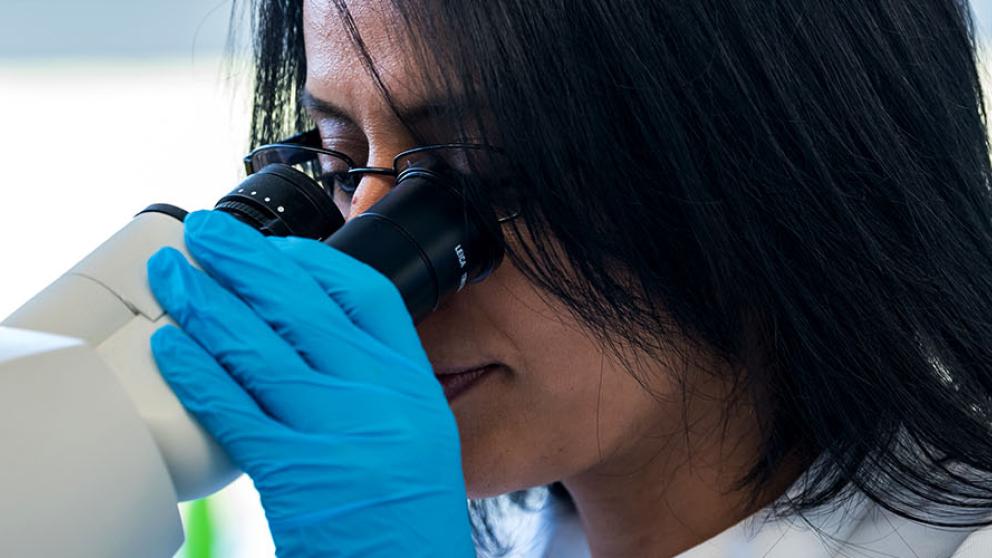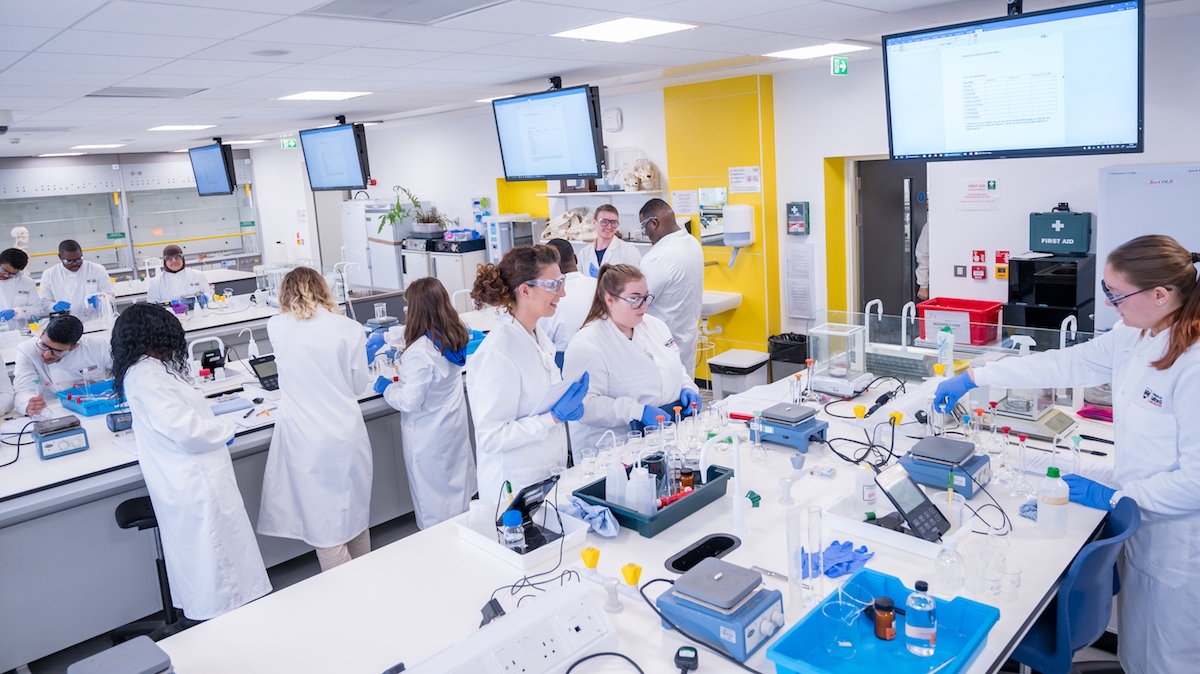Bioscience - part of something bigger
When you start a bioscience-based degree with Salford, you are also joining a community making a difference in industry, our local region and in our wider society. From biochemistry and pharmaceutical science to biological sciences and zoology, the University of Salford offers an exciting range of future-focused, industry-driven bioscience degree courses.
Local roots Global ambition
Many of our academics and technicians who support your studies are also delivering collaborative, interdisciplinary, high-impact work in a range of local and global healthcare and societal issues and challenges.
Our highly-relevant range of science courses include foundation year entry pathways and industry placements opportunities that can take your graduate career prospects to the next level.
Read on and discover how you are part of something bigger.
Making an impact Biomedical Research Centre
Our Biomedical Research Centre (BRC) brings together interdisciplinary expertise to explore healthcare and societal challenges: from identifying cancer stem cell metabolism processes and molecular biomarkers through to understanding the impact of zoonotic and pathogenic microbes on human and animal health.
Working closely with regional hospitals, and with established wider national and international collaborations with universities and research centres, our Centre leads high-quality, high-impact research focusing on new and improved treatments for a diverse range of diseases.
The Centre focuses on three research clusters: Cancer Diagnosis and Prevention, Cardio-Respiratory Physiology and Infectious Diseases. Dementia and Healthy Mind is a growing field of our research.
Making an impact Bodmer Laboratories
For some of our biosciences pathways, such as Chemistry and Pharmaceutical Science, students can also take full advantage of our new, fully-equipped Bodmer Laboratories.
The £3million specialist, industry-standard laboratories ensure our students benefit from the latest technologies to support their learning and help them to remain on the cutting edge of innovation and discovery.
The labs boast cell culture facilities, fluorescence, spectroscopy and microscopy and scanning electron microscopy, among other industry-standard instrumentation.
Having access to the latest technology enables students to build their practical skills and, upon graduation, they are fully prepared and equipped to enter the workplace.
Case study: Tackling AMR in Uganda
Universities are integral to advancing our understanding of the world around us. At Salford, we're proud to have a Biomedical Research Centre that is leading vital research that addresses diverse problems in sciences and health.
Our pioneering research in tackling antimicrobial resistance (AMR) in Uganda is just one example of how we do this. Our work has led to sustained improvements in antimicrobial stewardship among health workers in Uganda, changing behaviour and reducing the number of deaths associated with maternal sepsis.
Watch our REF21 summary video to learn more about this research project.




